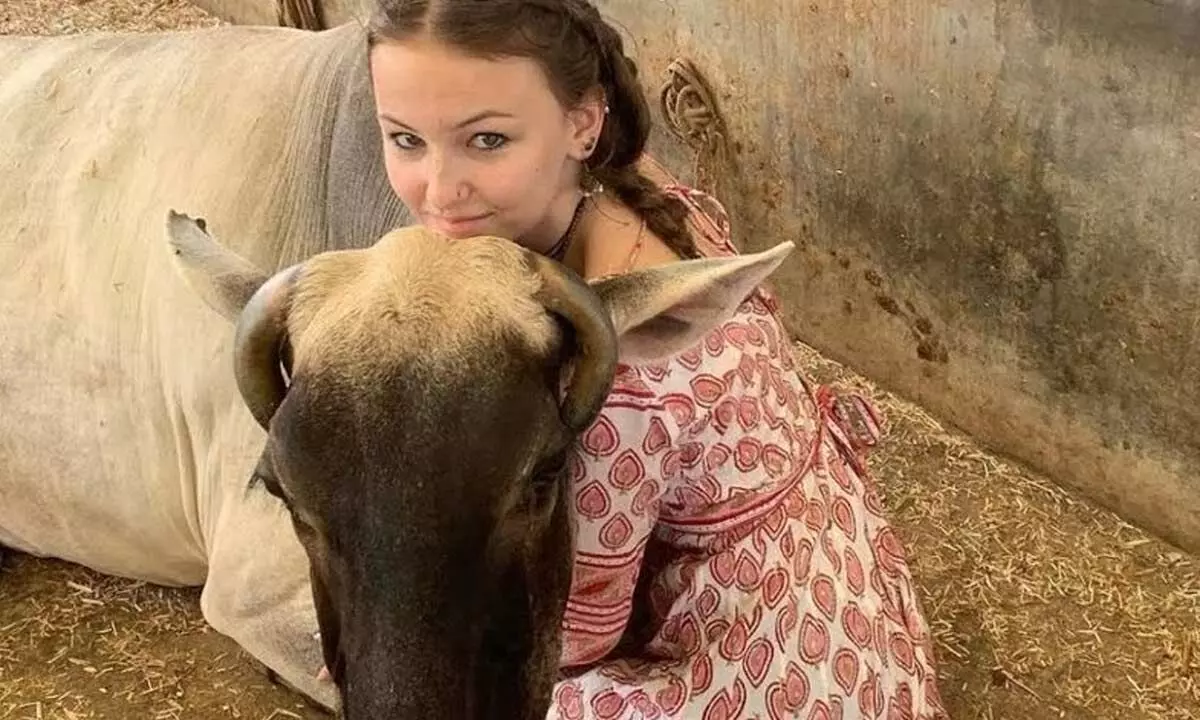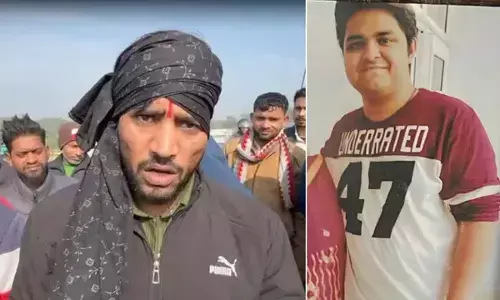Preserving Dharma

We use the word dharma as almost equivalent to religion. Like all religions the dharma of Hindus has many unique features.
We use the word dharma as almost equivalent to religion. Like all religions the dharma of Hindus has many unique features. Each society has several ways of preserving its dharma. Devotional literature, music, dance and other art forms have a major role. In addition, there are traditions followed by all people in a religion. Some newly developed practices may go to a ridiculous extent, but all exotic vagaries appear to have acceptance from some sections of people, depending on their own understanding. During a recent visit to the USA, I happened to learn about the goshalas run by Hindu devotees there. People pay about 50 dollars to cuddle a cow for an hour, pay 25 dollars to feed grass to it or pay about two thousand dollars if the cow is brought for consecration of a new house or even entry into an old house. A couple of years ago in Hyderabad, the enthusiastic organisers of a series of talks on Shankaracharya organised cow worship on the sidelines. It was amusing to see devotees keeping calves on cradles and singing lullabies. Some may laugh at this, but there are takers.
Many seriously argue about how according to tradition (aachaara) a tuft is essential for the study of scriptures, but this resulted in thousands of young men who failed to secure a bride because of tuft. The pundits have to decide as to which is more important and to what extent some relaxation may be made.
Dharma is beyond traditions and practices. As per its very definition, dharma is what unites society, and it considers changing times and changing circumstances. Cultural and social patterns change due to technological change. Dharma is dynamic, it decides which is most primary and which others are secondary. Preserving the superficial aspects of tradition may be highly impractical in changed times. People give up and evolve their own formulae for compromise.
All peripheral practices can be wiped away if there is a serious debate on the core principles of dharma. A globalized kid is exposed to several religious patterns and if he is not informed about the core values, the peripheral practices will be assumed as the core. Practices like cuddling a cow will be dismissed by such a kid. Religions usually have a core text containing a defined value system about interpersonal relations, about individual purity, about God, about how one deals with people of other religions and so on. In the western religions the core texts give such a value system, given by God himself. In India the dharma texts, the core values are given by sages in the Upanishads, and they are retold by Krishna in the Gita. The peripheral practices are given by sages. Such texts kept changing from time to time.
Hinduism is founded on the philosophical thought of the Upanishads. A core value given by Krishna, speaking as the mouthpiece of Supreme Reality, is about the liberal and all-inclusive approach towards worshippers of any other God also. As the Supreme Reality is an impersonal entity with no name, form or functions, ‘Worship in any name and form and I answer in the same name and form’, he says in the Gita. Reiterating it, he says, ‘even if you are worshipping any other deity, you are worshipping me only’. Such an inclusive statement cannot be found elsewhere. All accursed statements about discrimination of people are the code given by humans but not by God.
Another core feature is a training curriculum for purification of the individual to the extent that the individual ego is dissolved in the cosmic plan of action. Such a refined individual is God in human form. Every human being has the potential to achieve this. He need not convert others into his religion, but he has to convert himself into God and see divinity in all beings.
Can we not teach the core doctrine to our kids and common folk instead of drilling them in peripheral actions? That alone would enhance their self-respect and respect for dharma. Preserving dharma is the task of the youth, and they have a rational approach. Our doctrine is highly rational, but we have not realized it. It will be well preserved if it is accepted in the heart as something valuable.
(The writer is a former
DGP, Andhra Pradesh)

















